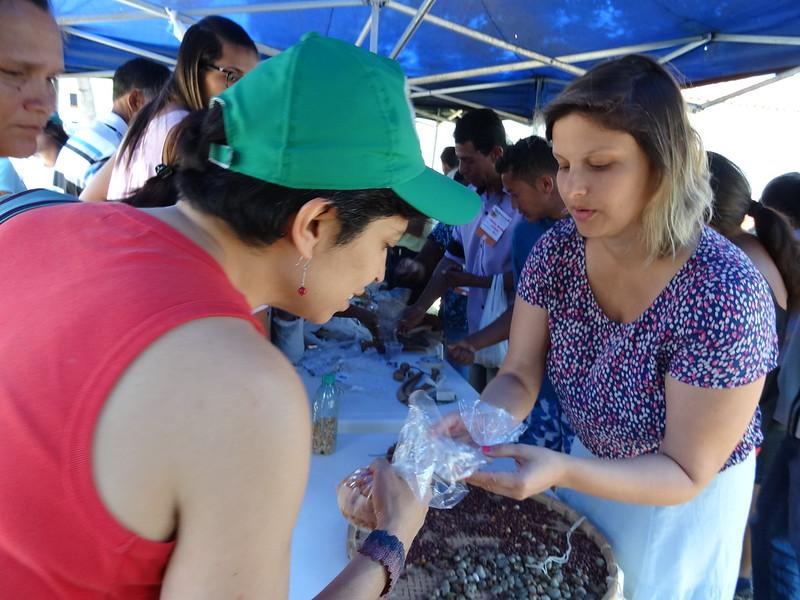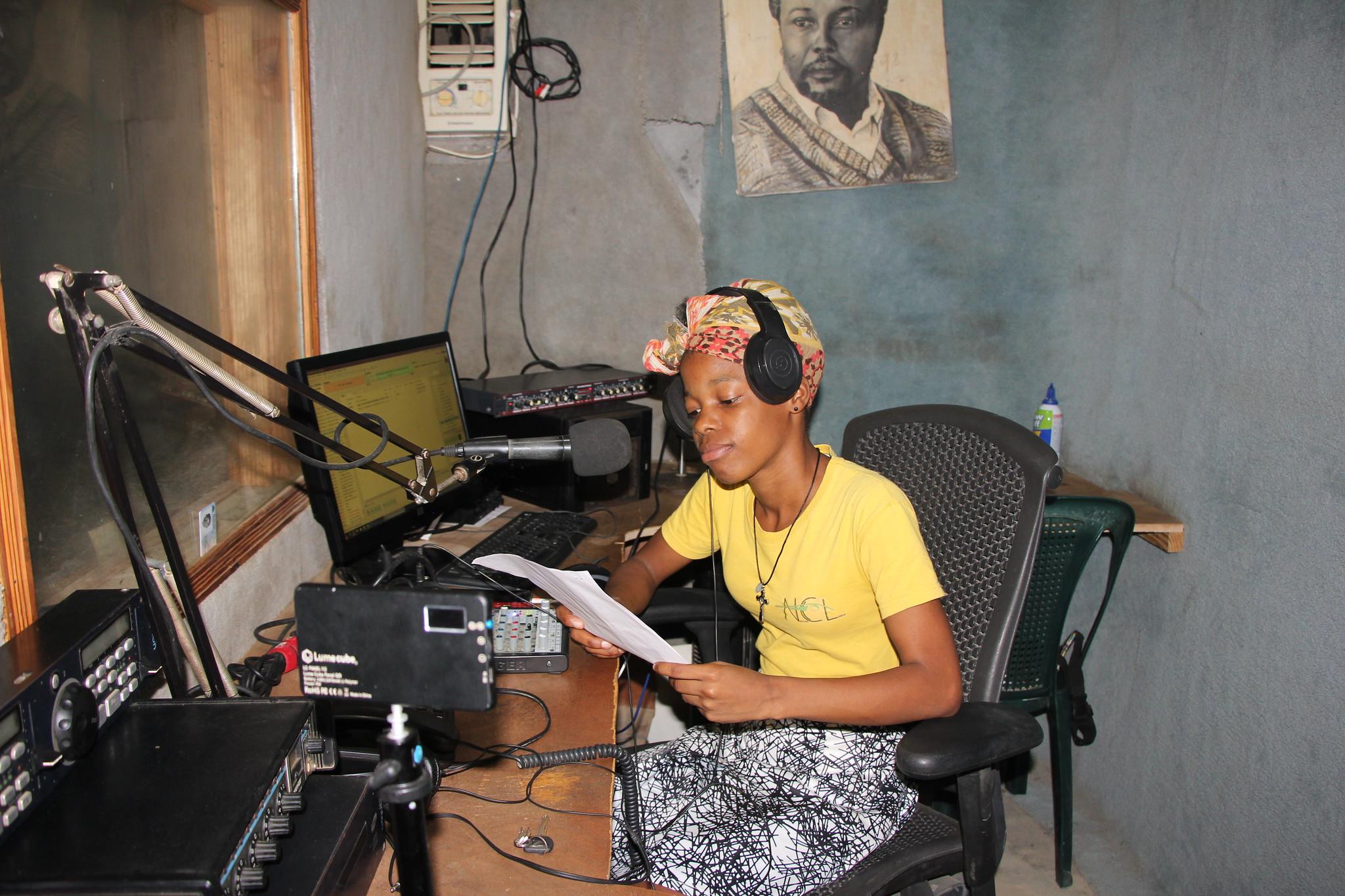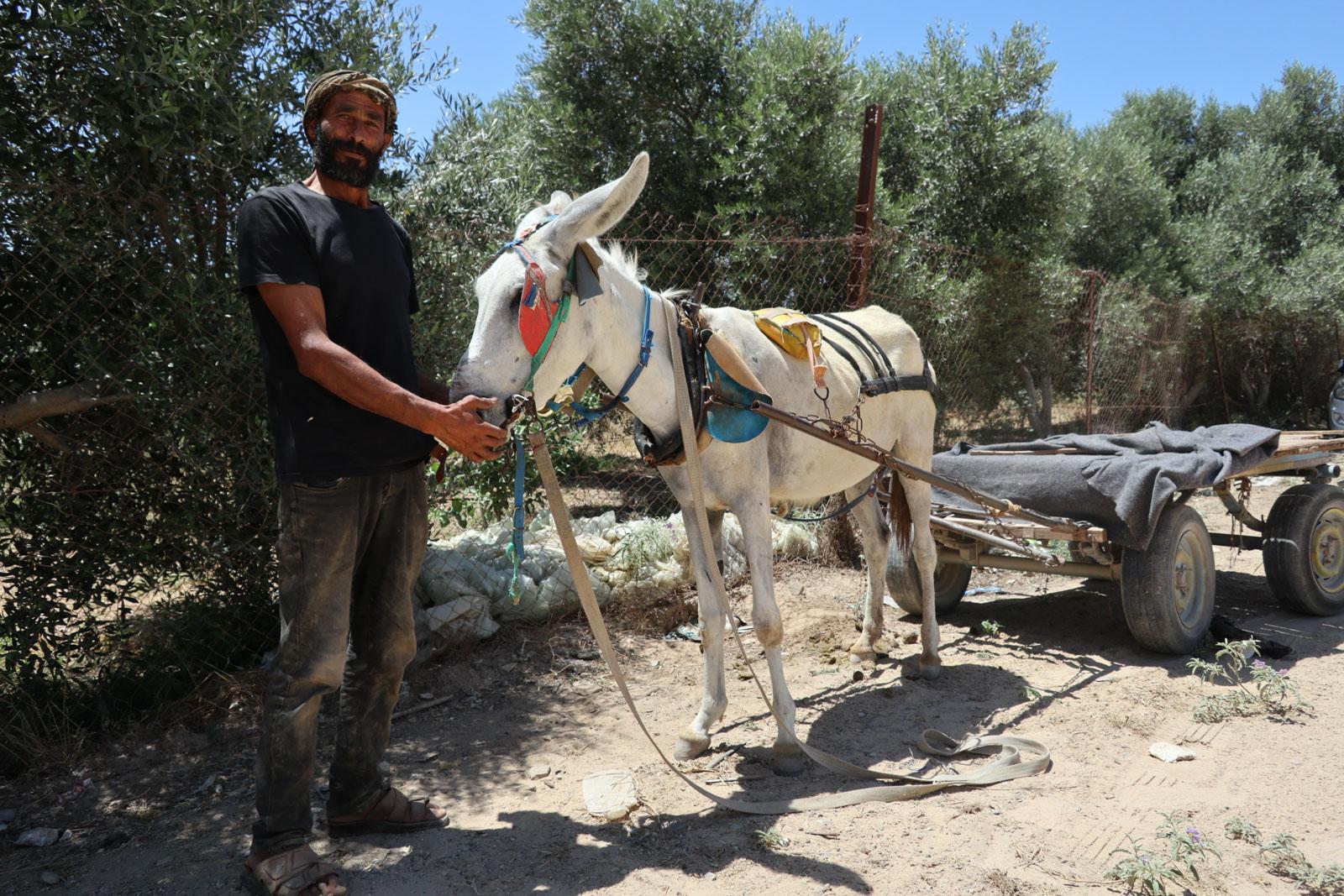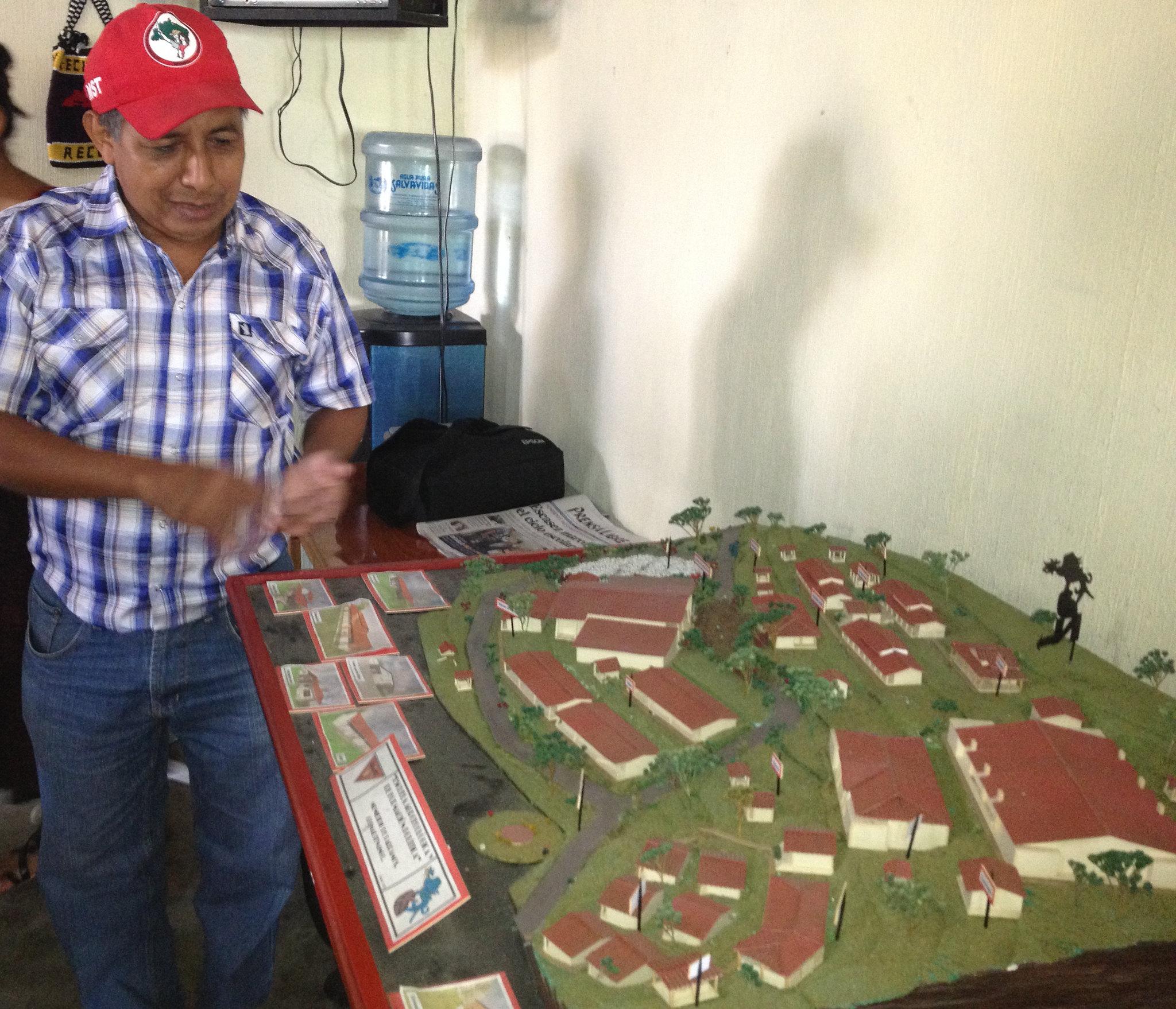Scaffolding for a Liberated Future: Our New Movement Infrastructure Fund
Photo by Brooke Anderson
Grassroots International is committed to accompanying our movement partners through a variety of different grantmaking strategies. In addition to core flexible multi-year funding, we have several funds to respond to specific needs of our partners. These include an Emergency Fund, a Learning Exchange Fund, and, most recently, a Movement Infrastructure Fund to address infrastructure needed for longer-term efforts. This latest fund seeks to support movements as they construct alternative systems in the here and now while building toward a more liberatory future – a process some of our partners describe as “just transformation.”
We launched this special fund in 2023, with an initial investment of $4M made possible by a large unrestricted gift. Since then, we have been in a slow and deliberate process of learning, through one-on-one conversations with our movement partners, about what their most pressing movement infrastructure needs are. The following are some of the many ways in which the fund is being used.
Land Reclamation
From land grabbing to settler colonialism, many communities are facing the loss of their ancestral lands. Particularly in moments of crisis, purchasing land can be seen as a necessary, short-term step to retain their deep and sacred connection to their territory and lifeways and to further the longer-term movement goals of land reclamation, rematriation, and sovereignty. Many communities are fundamentally opposed to commodification, privatization and financialization of nature, and see the irony of people having to buy their own ancestral land. However, they also recognize that buying land before it can be sold or leased for corporate projects – or buying back land that has already been taken from them, and returning it to sustainable, regenerative use – may be part of a bigger process of being in right relationship to it. To this end, we have made infrastructure funds available to movement partners for land purchase.
One of our partners paving the way in the area of land reclamation and rematriation is the Instituto para la Investigación y Acción en Agroecología/Institute for Investigation and Action around Agroecology (IALA-PR) in Puerto Rico. With our support, and with the enthusiastic resource mobilization led by the Friends of Boriken donor organizing group, IALA has been purchasing land throughout the archipelago and using it to create agroecology schools and other political formation projects, as well as sustainable, agroecological farming projects, such as the ones described in this article.
Once the land has been reclaimed, we have supported the development of collective movement infrastructure, including solar facilities for energy sovereignty, internet access, communal kitchens, spaces for spiritual practice, and more.
Purchasing Buildings and Expanding Facilities
Other groups have told us their main infrastructure needs are related to acquiring buildings for their operations, or adding on to existing facilities they have already acquired or constructed.
One example is when our partner La Colectiva Feminista en Construcción/the Feminist Collective in Construction (La Cole) in Puerto Rico had occupied and rehabilitated an abandoned building. Once their work was done, and they had incurred the costs of the rehabilitation, the initial owner returned and endeavored to get them to vacate, so he could reap the efforts of their labor. Eventually La Cole was faced with the choice of either purchasing the building or losing it. With support in part from our fund, they were able to buy the building. They are now using it for community programming and for accommodations for their organizing staff, who have difficulty finding affordable housing with the cost of rent skyrocketing due to the purchase of apartment buildings by speculative investors.
We are also in the process of providing an infrastructure grant to Consejo Cívico de Organizaciones Populares e Indígenas de Honduras/Civic Council of Popular and Indigenous Organizations of Honduras (COPINH) for support in expanding the housing accommodations and facilities at their Utopia Center for Gathering and Friendship, a collective space for community building and ongoing political formation they have built on their Indigenous territory.
Other examples of movement facility acquisition/improvement supported by the Infrastructure Fund include:
- In Brazil, new/improved headquarters for Movimento dos Atingidos por Barragens/Movement of People Affected by Dams (MAB) and the Sempreviva Feminist Organization (SOF), as well as a new market space for the Movimento dos Trabalhadores Sem Terra/Landless Workers Movement (MST) for cultural programming and other activities, in addition to sales.
- In Mexico, new dormitories for SER Mixe, an organization that serves 130,000 Indigenous Peoples across 19 municipalities in northwestern Oaxaca, to provide lodging to those traveling from afar to take part in their programming.
- In Nigeria, a new office in Abuja for the Health of Mother Earth Foundation (HOMEF), to facilitate its policy work, along with a van to facilitate staff field visits while reducing reliance on costly and risky travel options and audiovisual equipment to document the harsh realities of climate impacts on communities.
- In Haiti, the drilling of a well by Mouvman Peyizan Papay/Peasant Movement of Papaye (MPP) for drinking, household use, and irrigation, as well as roof repair and a new training room in advance of its 50th congress. And various infrastructure improvements by Mouvman Peyizan Nasyonal Kongre Papay/National Congress of the Papaye Peasant Movement (MPNKP), including the implementation of an alternative energy system to reduce reliance on traditional power sources.
 Seed Protection Programs
Seed Protection Programs
The Infrastructure Fund has also supported Brazil’s MST in their seed protection program, through which they protect, preserve, multiply, and disseminate creole seeds. In doing so, they protect the genetic heritage of seeds as well as the biodiversity of crops they produce through their varied and widespread agroecological farming projects. This effort is a critical form of resistance to corporate agribusiness, advancing food sovereignty throughout Brazil.
Schools for Agroecology, Popular Education and Political Formation
Infrastructure grants have also gone to peasant and Indigenous movements in Guatemala, Mexico, and Nicaragua for the establishment and/or expansion of national and regional agroecology schools providing both hands-on skills and political formation. Additionally, Organización Fraternal Negra Hondureña/Black Fraternal Organization of Honduras (OFRANEH), an Afro-Indigenous Garifuna organization, is embarking on a long-term project of establishing a Garifuna University in Vallecito, ancestral land on the coast of Honduras, where they will launch education projects to defend Garifuna language and culture.
Security for Movement Leaders and Communities
Infrastructure grants have also gone to support security infrastructure to protect Garifuna communities in Honduras facing multiple threats. These include not only the drug cartels in the region, but also government forces ostensibly deployed to protect Garifuna communities, who are complicit with the drug traffickers and hostile to the Garifuna movement. In recent years, a number of Garifuna land and human rights defenders have been kidnapped or assassinated, with threats against many more, making collective security for communities and movements leaders of critical importance.
 Communications Infrastructure
Communications Infrastructure
During the global pandemic, social movements revamped their communications infrastructure through a variety of vehicles such as video conferencing software, community radio, and social media, among others. There is still a huge gap in infrastructure for many remote communities, and more resources are also needed to build secure online communications vehicles. Our partner the World March of Women, in coordination with other global social movements, created a communications hub called Capire that disseminates information online in four languages. A next goal is to build out the capacity of Angela, a feminist platform for video conferencing named after Angela Davis, for hosting virtual exchanges. The communications infrastructure funding we are providing will go towards equipment, training, software development, and digital security.
 Palestine
Palestine
It should be noted that prior to the rapid escalation of the genocide in Gaza, among the infrastructure grants we made were those to our partners in Palestine to support construction of a multi-use building to provide comprehensive community health and mental health programming, and also to strengthen community-based infrastructure projects of farmers and fisherfolk.
Even as we continue to prioritize mobilizing for a ceasefire, we are aware that partners in Palestine will have tremendous infrastructure needs to recover and rebuild the very fabric of their communities, to reconstruct the countless buildings that have been destroyed, and to regenerate the land that has been razed and poisoned. We are committed to supporting this future work, in the firm hope and belief that there will be an end to the violence and that Palestinian movements will be able to carry on their decades of work for a free Palestine.
Looking to the future
While the need for infrastructure funds in Palestine will remain a priority in the years ahead, we will also continue to raise funds for the infrastructure needs of movement partners globally. We are grateful to the major donors who have helped make the establishment of the Infrastructure Fund possible, and we look forward to seeing the seeds being sown through it, literally and figuratively, bear fruit and strengthen the foundations for long-term movement building.

